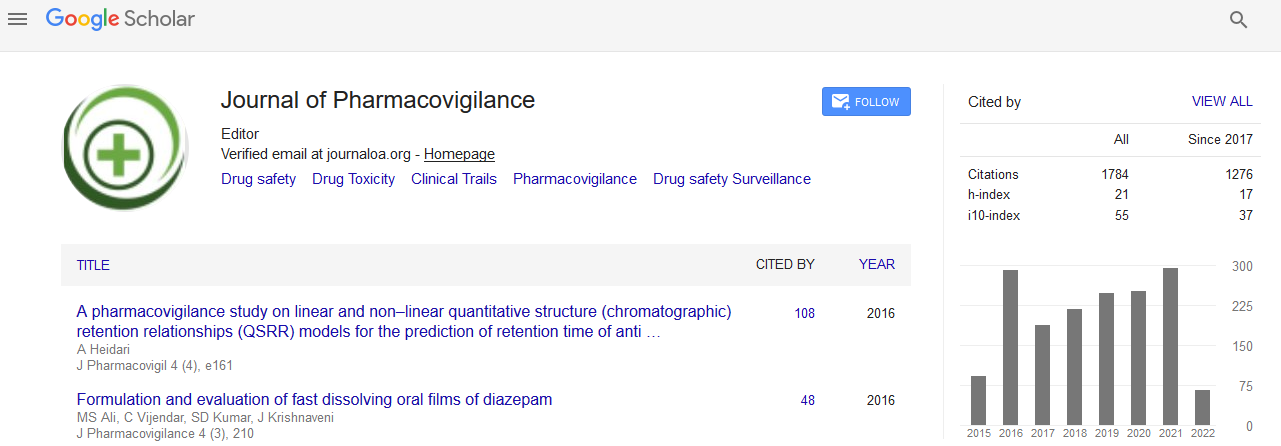Indexed In
- Open J Gate
- JournalTOCs
- The Global Impact Factor (GIF)
- RefSeek
- Hamdard University
- EBSCO A-Z
- OCLC- WorldCat
- Publons
- Euro Pub
- Google Scholar
Useful Links
Share This Page
Journal Flyer

Open Access Journals
- Agri and Aquaculture
- Biochemistry
- Bioinformatics & Systems Biology
- Business & Management
- Chemistry
- Clinical Sciences
- Engineering
- Food & Nutrition
- General Science
- Genetics & Molecular Biology
- Immunology & Microbiology
- Medical Sciences
- Neuroscience & Psychology
- Nursing & Health Care
- Pharmaceutical Sciences
Abstract
Hyponatremia Secondary to Antidepressant Therapy - A Post Marketing Safety Study
Harsha M Shetty, Manimekalai K, Sivaprakash B, Jagan Mohan R and Pooja H Shetty
Background: Most antidepressants have been associated with hyponatremia. The risk is highest during the early stages of the treatment. Symptoms are commonly mistaken for physical complaints of old age or the underlying conditions. Speed of onset determines the risk of developing symptoms.
Aims and Objectives: To establish the incidence, risk factors, time course of detection of hyponatremia complicating treatment with antidepressant therapy. Also, to objectively assess the causality, severity and preventability of hyponatremia as an adverse drug reaction.
Methods: The study was carried out in collaboration between the Departments of Pharmacology and Psychiatry, Mahatma Gandhi Medical College and Research Institute, India. The source populations in our study were all the out- and in-patients on antidepressant therapy with normal serum sodium concentration meeting the eligibility criteria of the study. The assessment of causality, severity and preventability of the hyponatremia with the use of anti-depressant therapy were assessed using Naranjo’s scale, Hartwig and Siegel’s scale, and Schumock and Thornton’s scale respectively.
Results: A total of 24 cases had hyponatremia with 21 cases assessed as “probable” on Naranjo’s Scale. We found a moderately strong positive correlation between the use of mirtazapine and occurrence of hyponatremia with a p value of 0.089. The use of venlafaxine also suggested a positive correlation with a p value of 0.097. Though not statistically significant we found cases reported for Milnacipran. Mean ± SD for overall time to detection of hyponatremia was 224.71 ± 117.79 days. In the univariate regression, we found SNRIs and Mirtazapine to have significant association with hyponatremia. However, none of the other factors and concomitant medications proved to have a significant association on multivariate regression analysis.
Conclusion: Hyponatremia is an under recognized and potentially serious complication of antidepressant therapy. Our results provide a foundation for understanding the safety profile of antidepressants in a clinical setting of hyponatremia and its impact on suitable monitoring and treatment strategy.


